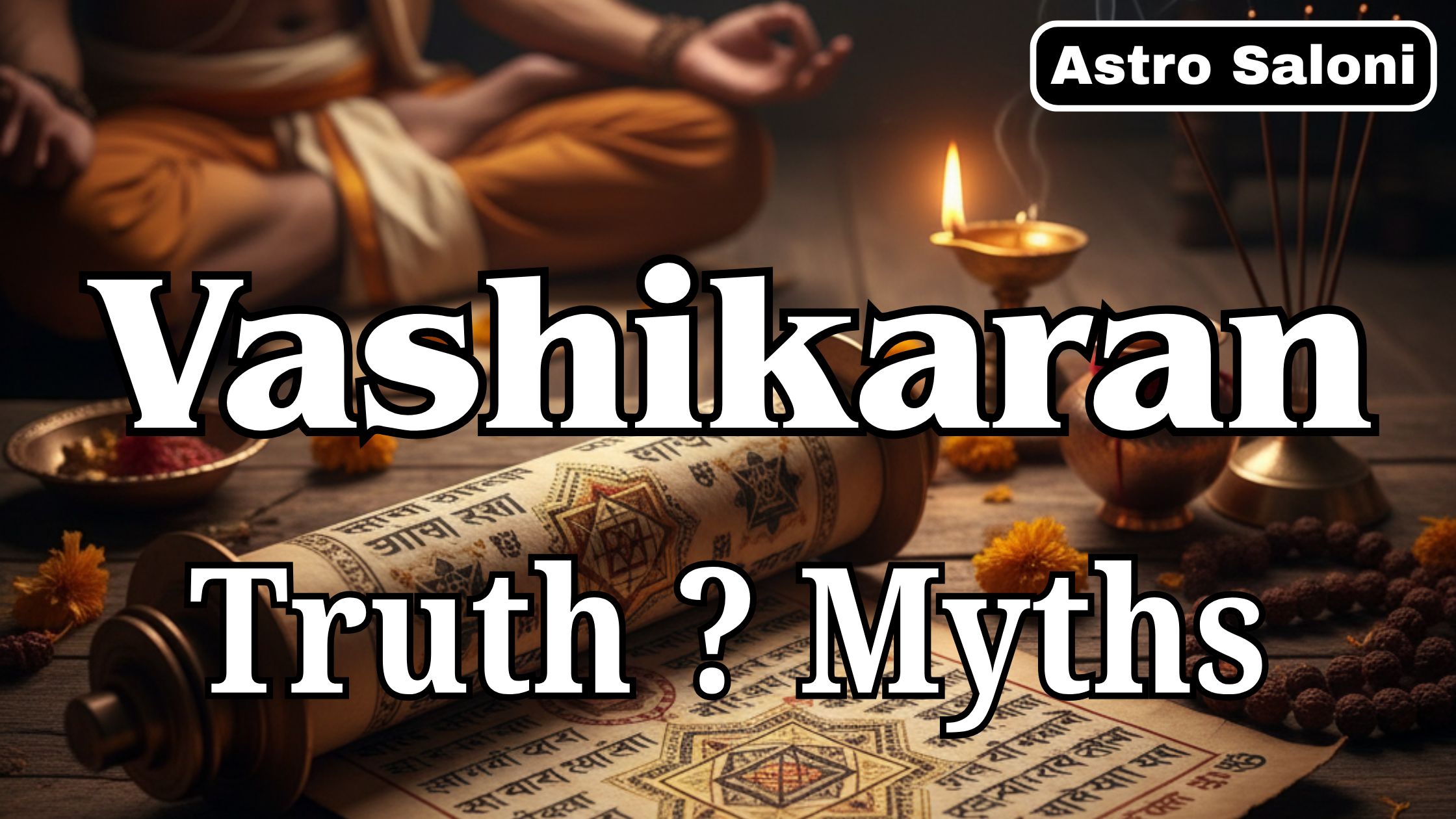
Few ancient practices evoke as much intrigue and controversy as Vashikaran. Whispered about in hushed tones, it’s a concept deeply rooted in spiritual traditions, primarily from the Indian subcontinent. But what exactly is Vashikaran? Is it a potent form of mystical influence, a psychological phenomenon, or a dangerous deception?
This guide aims to peel back the layers of misconception, separating the verifiable truths from the widespread myths surrounding this ancient art of attraction. We'll explore its history, dissect its principles, examine its modern relevance, and provide a balanced perspective on a practice that continues to fascinate and divide.
Historical Origins and Ancient Roots
Vashikaran is not a modern invention; its roots stretch back centuries into ancient Indian scriptures. Mentions of similar practices can be found in various Vedic texts and Tantric literature, often intertwined with astrology, Ayurveda, and spiritual healing.
Historically, Vashikaran was not solely associated with romantic conquest. It was seen as a tool for influencing all aspects of life – from attracting prosperity and resolving conflicts to gaining favour from others. The practices were typically guarded secrets passed down through generations of spiritual practitioners or 'Gurus'. The term itself, 'Vashikaran', originates from Sanskrit, where 'Vashi' means 'to control' or 'attract' and 'Karan' means 'the method of doing'.
What is Vashikaran?
At its core, Vashikaran is a set of practices, including mantras, rituals, and mystical diagrams (yantras), aimed at influencing or attracting a person or outcome. Its proponents claim it works by channeling spiritual energies to alter the thoughts, feelings, or behaviour of another person, often describing it as a form of 'mind control' or 'attraction magic'. The practitioner's intention is considered crucial, determining whether the outcome is benevolent or malevolent.
Types of Vashikaran
Practitioners often categorise Vashikaran based on intent and methodology:
- White Vashikaran: This form is supposedly used for benevolent purposes, such as resolving marital disputes, fostering love, or attracting positive opportunities. The intent is said to be pure, aiming for harmony without causing harm.
- Black Vashikaran: This darker aspect is associated with malevolent intentions. It's allegedly used to cause harm, manipulate individuals against their will, or exact revenge. This form is widely condemned and often linked with 'black magic'.
- Red Vashikaran: Sometimes mentioned as a specific sub-category, Red Vashikaran focuses primarily on passionate love and sexual attraction. It's often invoked to win back a lost lover or ignite romantic feelings.
It's important to note that these categories are often fluid and open to interpretation.
A Scientific Perspective: Fact vs Fiction
When scrutinised scientifically, the claims of supernatural influence face considerable challenges. There is no empirically verifiable evidence to support the idea that mantras or rituals can exert direct, remote control over another person's free will or alter their emotions. The concept operates outside the established laws of physics, biology, and psychology.
However, the human mind is complex. The belief in Vashikaran can have tangible effects, making the distinction between a mystical power and a psychological response crucial.
Psychological Explanations and the Placebo Effect
From a psychological standpoint, the effects attributed to Vashikaran can often be explained by phenomena such as:
- The Placebo Effect: If someone strongly believes they are undergoing a powerful ritual, their own mind can generate changes. Expectation and belief are potent forces. If a person believes they are being influenced, they might unconsciously alter their behaviour to align with that belief.
- Confirmation Bias: Individuals seeking Vashikaran often look for evidence that it's working, interpreting coincidences or ambiguous events as proof of its efficacy.
- Suggestibility and Hypnosis: Some practices, particularly those involving repetitive chanting, might induce a state of suggestibility, making participants more open to external influences or their own subconscious desires.
- Social and Cultural Influence: In cultures where Vashikaran beliefs are prevalent, social pressure and pre-existing narratives can shape an individual's perceptions and experiences.
Vashikaran Practices and Rituals
While the scientific validity is questionable, the traditional practices are often detailed and specific. They typically involve:
- Mantras: Sacred syllables or verses chanted repeatedly with a specific intention.
- Yantras: Geometric diagrams etched on various materials, believed to contain and amplify spiritual energies.
- Rituals (Pujas/Homas): Elaborate ceremonies involving offerings, prayers, and specific actions performed at auspicious times.
- Astrological Timing: The timing of rituals is often determined by astrological calculations, based on the belief that planetary positions can enhance the practice's efficacy.
For example, a common practice involves chanting a "Mohini Mantra" or "Kamdev Mantra" to attract love. These mantras are often recited a prescribed number of times (e.g., 108 times daily) over a set period.
Vashikaran in Modern Society
Despite the rise of scientific understanding, Vashikaran continues to find relevance today. It is frequently sought by individuals facing:
- Relationship problems, from unrequited love to estranged partners.
- Marital discord and conflict.
- Business or career hurdles.
- Legal disputes.
The internet has contributed to its modern presence, with numerous websites and self-proclaimed practitioners offering 'Vashikaran services', often with little accountability.
Ethical Concerns and Legal Implications
This is where the practice enters highly contentious territory. The ethical implications of attempting to control another person's free will are profound, raising serious questions about autonomy and respect.
Legally, while the practice itself may not be explicitly illegal in many countries, actions taken under its guise can have repercussions. If someone is defrauded of money or if the alleged Vashikaran leads to harassment, stalking, or other criminal acts, legal consequences are highly likely. Exploiting vulnerable individuals is a form of deception and often punishable by law.
Separating Truth from Myth
Let's summarise the distinction:
- Myth: Vashikaran offers a supernatural method to control another person's mind. There is no scientific evidence to support this.
- Truth: The belief in Vashikaran can have significant psychological effects, explained by phenomena like the placebo effect and confirmation bias.
- Myth: Vashikaran is a guaranteed solution for all problems. This is an unfounded claim often used by fraudulent practitioners.
- Truth: The allure of Vashikaran often stems from a deep-seated human desire for control, especially when facing helplessness or heartbreak.
The 'truth' of Vashikaran, from a rational perspective, lies in its psychological and cultural impact, not in its claimed mystical powers.
The Risks of Engaging with Vashikaran
Engaging with Vashikaran, particularly through unscrupulous practitioners, carries several significant risks:
- Financial Exploitation: Many 'specialists' charge exorbitant fees, preying on desperation.
- Emotional Distress: False hope can lead to deeper disappointment. Believing you are a 'victim' can cause immense fear and paranoia.
- Legal Trouble: Actions taken under the guise of Vashikaran can have legal repercussions.
- Relationship Damage: Attempting to manipulate someone can irreparably harm trust and genuine connection.
- Delaying Real Solutions: Focusing on Vashikaran can prevent individuals from addressing underlying issues through healthy, constructive means.
Healthy Alternatives to Vashikaran
Rather than resorting to methods of questionable efficacy and ethics, consider healthier, evidence-based approaches:
- Open Communication: The cornerstone of any healthy relationship is honest dialogue.
- Counselling and Therapy: Individual or couples therapy provides tools for resolving conflicts and improving communication.
- Self-Reflection and Personal Growth: Focusing on your own well-being and self-esteem can make you more resilient and attractive.
- Building Genuine Connection: True, lasting relationships are built on mutual respect, shared values, and authenticity; not manipulation.
Conclusion: A Balanced Perspective
Vashikaran offers a fascinating glimpse into human desires and the search for control in an unpredictable world. While its historical and cultural significance is undeniable, a critical examination shows that its verifiable 'truth' resides in the realm of belief and its psychological repercussions, rather than any proven supernatural ability.
Awareness is key. Understanding the myths helps guard against exploitation, while recognising the psychological underpinnings can empower you to seek genuine, ethical, and effective solutions to life's challenges. Ultimately, true attraction and sustainable happiness are found not in manipulation, but in authenticity, mutual respect, and the conscious effort to build healthy relationships.


